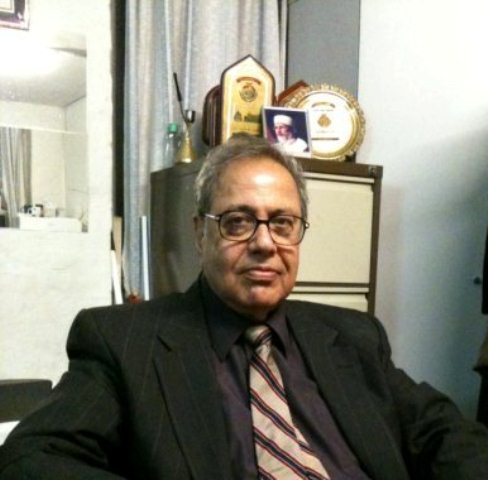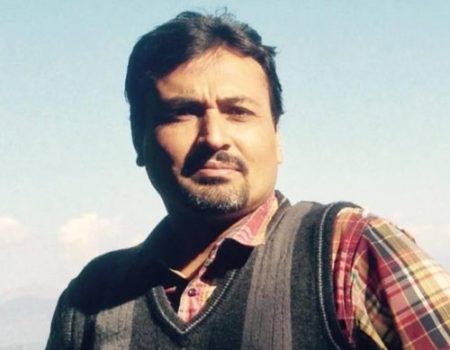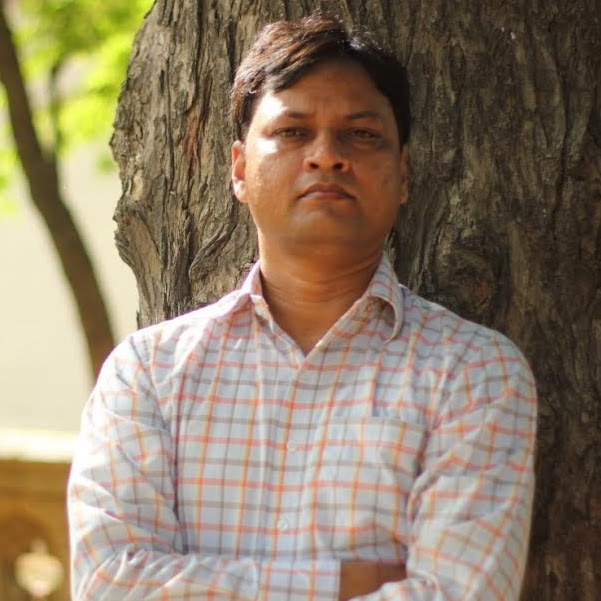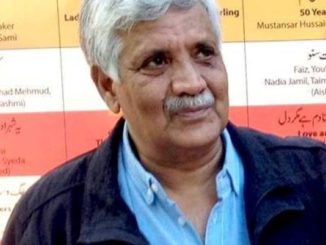
A pleasant recollection on famous poet John Updike
by Dr Satyapal Anand
88-89ء کے دوران جب میں واشنگٹن ڈی سی کی ساؤتھ ایسٹرن یونیورسٹی میں پڑھا رہا تھا، امریکہ کے ایک ممتاز شاعر کے حوالے سے ایک خوشگوار واقعہ ہوا۔ جان اپڈائک John Updike نہ صرف شمالی امریکا کے طول و عرض میں، بلکہ یورپ میں یا دنیا کے انگریزی بولنے والے دیگر ممالک میں ایک ممتاز حیثیت رکھتے تھے۔ میں اپنے انڈر گریجویٹ کورس میں انگریزی شاعری کی جو انتھالوجی پڑھاتا تھا، وہ اس لحاظ سے بے حد مربوط تھی کہ اس میں شیکسپیئر سے لے کر جدید شعرا تک سبھی شامل تھے۔
اس ضخیم کتاب Norton Anthology of Poetry (دو ہزار ایک سو اسّی صفحات) میں سے مجھے خود منتخب کی ہوئی نظموں کو ہی اپنے کورس میں شامل کرنا ہوتا تھا۔ جان اپڈائک کی نظموں کے انتخاب میں ایک نظم مجھ سے سہواً ہی شامل ہو گئی۔ اس نظم کا عنوان تھا۔ I missed his book but I read his name ایک ہلکے موڈ میں لکھی گئی تھی، اور اس میں ایک ہندوستانی ناولسٹ Mr. Anantanarayanan کے نام کا مذاق اڑایا گیا تھا۔
[su_quote]ایک سیمیسٹر میں تو میں نے یہ نظم پڑھائی لیکن بعد میں مجھے احساس ہوا کہ اس سے ہندوستانی ناموں کی تضحیک کا پہلو پیدا ہوتا ہے۔ اس لیے میں نے اسے اگلے سیمیسٹر میں اپنے کورس کے خارج کر دیا۔ لیکن اس طولانی بحث سے بہتر ہے کہ میں اپنے شعری مجموعہ Sunset Strands (Trafford Publishing, 2011) میں اس واقعے کے متعلق تحریر کردہ پورا اقتباس یہاں لکھ دوں۔ اس کتھا کی ضخامت اس امر کی متحمل ہو سکتی ہے کہ چار پانچ صفحات اور بڑھ جائیں۔ اقتباس کا آغاز کرتا ہوں۔ جان اپڈائک کی اور اپنی نظمیں آخر میں لکھوں گا :[/su_quote]
On how and when this poem was written A note
John Updike, the renowned American poet, wrote a poem titled، I Missed His Book, but I Read His Name (1963), and using his sleigh of words with a tongue in his cheek, he made fun of the Indian novelist’s relatively unpronounceable name, The title of Mr. Anantanarayanan’s book was The Silver Pilgrimage (California 1961). I had read John Updike’s poem in Norton Anthology of Poetry, a textbok I used for my undergraduate students. It rankled in my mind for I always had great regards for John Updike. Almost a year junior to me in age, we were contemporaries in more than one sense of the word. The chance to talk to him came pretty late in my life as I was involved in my domestic affairs.
Towards the closing months of 1991, I phoned him and left a message with his Secretary that I would like to meet him for a few minutes. He called me on my phone in the University and said he would be happy to meet a fellow poet from India, though he had never heard of my name. The date, time and place were agreed upon. I had to meet him in the office of The New Yorker, and from there, he said, we would go for a drink and a bite in the nearby pub.
Our meeting was a great success. I found him a jocular person, ever ready to laugh. When I referred to his poem, he said that he had read this unpronounceable name in The New York Times and was so given to its nasal twang that he practiced pronouncing it. When he couldn’t, he wrote the poem but it was not done to belittle the gentleman whom he had never met. Anyway, I told him that I had written a poem addressed to him. He was intrigued.
He told me he had never had any one write a poem to him except a schoolgirl friend back in his school days. I read out the poem. He laughed at almost every line of it. When his laughter had subsided, he said, “Come on, Satyapal, let’s have a wager. If you can pronounce the gentleman’s name five times in a row without strutting or stopping, I will give you twenty dollars. If you can’t, you will give me fifty.” I got the catch. “Don’t act the Jew with me, John,” I said, “Twenty it is for both of us.” He laughed . “All right, let’s act Hindu with each other. “Twenty it is either way.”
It is an interesting story, but the fact of the matter is that I lost the bet. The first two times I succeeded but at the third time I stuttered and lost the mometum to pronounce Ananatanarayanan in one breath. I would say Ananta and then pause for a mini-second before continuing with Narayanan. He was happy with himself. He said, “Let me sign your poem so that you have a record that I had approved of it. Maybe, you can sell my signatures for more than twenty bucks.” He signed the poem with my pen.
I have treasured the piece of paper ever ever since. Here is his signature on my poem”.
(For obvious reasons of propriety I am not reproducing his signatures which I did in my book without any qualms of conscience.
اب میں پہلے جان اپڈائک کی اور بعد میں اپنی، دونوں نظمیں نقل کر رہا ہوں۔
Though authors are a dreadful clan
To be avoided if you can,
I’d like to meet the Indian,
M. Anantanarayanan.
I picture him as short and tan,
We’d meet, perhaps, in Hindustan
I’d say, with admirable e’lan
“Ah, Anantanarayanan ….
I have heard of you. The Times once ran
a notice on your novel, an
Unusual tale of God and Man.”
And Anantanarayanan
Would seat me on a lush divan
And read his name — that sumptuous span
Of “a”s and “n”s more lovely than
“In Xanadu did Kubla Khan” —
Aloud to me all day, I plan
Henceforth to be an ardent fan
Of Anantanarayanan …
M. Anantanarayanan.
***************
To John Updike
In response to his poem belittling M. Anantanarayanan
John, suffering unashamedly
Of acid, as you are often, doesn’t mean that you,
A Caucasian with a twisted tongue, words flowing
From both ends, (you only know which and who)
Should belittle a poet who grew
With a name that needs some nose blowing.
What’s so difficult, man, to pronounce
A hallowed name that means Good, the Limitless One?
Ananta means limitless in Queens English, my friend
And Narayanan is one of His attributes.
Well, author-bitten you are probably
For you call all authors “a dreadful clan
To be avoided if you can.” But Anantanarayanan
You would like to keep confined to Hindustan.
Picture yourself with the man who is a marvel
He “as short and tan”, you “as tall and marmoreal”.
And you say you do now plan
To be his life-long ardent fan.
You would seat him, you say, on a lush divan
More luscious than one in Zanadu of Kubla Khan
And then practice saying again and again
All the “a”s and “n”s together, crazy or sane.,
I know John, you’re fond of nouns
Wigglesworth and Killpatrick and Hughshumphrey
They enter your poems all and sundry
So be at ease, offense is taken anon
By me or by M. Anantanarayanan.




